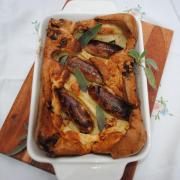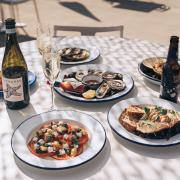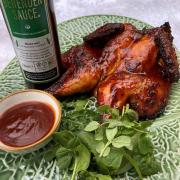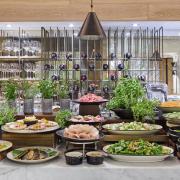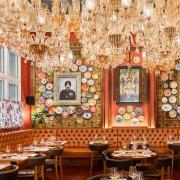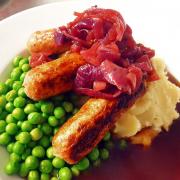If you’re keen to explore when the 18th-century equivalents of the Krays held sway, read on and explore some of Kent’s evil history

'Five-and-twenty ponies, Trotting through the dark
Brandy for the Parson,'Baccy for the Clerk.
Them that asks no questions isn't told a lie
Watch the wall, my darling, while the Gentlemen go by!'
This evocative poem by Rudyard Kipling conjures up images of loveable rogues moving silently through the night, their ponies laden with tobacco and French brandy. Such romanticism, albeit misleading, was perpetuated by contemporaries including Richard Barham, author of The Ingoldsby Legends and Russell Thorndyke, the 20th- century creator of smuggling cleric Dr Syn.
Given its proximity to continental Europe, smuggling was rife in Kent and involved people at every level of society. It was highly organised, usually by gangs - groups of sailors, demobbed soldiers, fishermen, labourers and adventurers - who routinely practised blackmail, robbery, violence and even murder.
The most vicious and notorious were from Hawkhurst, Aldington (the gang's 1827 Battle of Brookland with the Revenue is legendary) or Broadstairs - its Callis Court gang was famously led by the nonagenarian Jos Snelling.
Such groups used Kent's remotest hostelries for planning operations and both storing and distributing contraband. Many had hidden tunnels for a quick exit.
On the other side of the law, pubs served as temporary mortuaries and hospitals (The Ship, Herne Bay), courts (Dymchurch's Ship Hotel) or overlooked gibbets and gallows (Woodchurch's Bonny Cravat).

So, if you're keen to explore where the 18th-century equivalents of the Krays held sway, then Kent Smugglers' Pubs, a 128-page directory of smuggling watering holes by Kentish author Terry Townsend, will be of particular interest.
As Terry explains, smuggling began in the 1200s in response to duties levied on wool, England's main European export.
This initially spelled disaster for Kent's many sheep farmers who, for centuries, sidestepped the levy by illegally exporting wool (extremely profitably) to France.
This was made punishable by death in the 1660s, whereupon smugglers carried weapons or used armed minders, thus making violence inevitable.
By the 1820s gangs were illegally bringing in tea, tobacco, lace, silk and spirits to avoid import duties. The practice was so widespread that many people - from fishermen and pub landlords to churchmen, magistrates and squires - were involved in hiding, transporting, marketing, financing and generally turning a blind eye to smuggling. They didn't think of it as a crime, as it provided vital extra income for the poor.
The authorities had other ideas, however. Smugglers were treated harshly - transported to Australia or hanged - as an example.
"Nowadays we see smuggling as organised crime, but nonetheless a crime with community acceptance. The modern parallel is cannabis smoking," says the University of Kent's Dr Anne Logan.
"There's a real criminal element within smuggling and in those days criminal justice was about making an example, demonstrating state power."

Read on for a selection of pubs featured in the book:
- The Ship
17 Central Parade, Herne Bay
Dating from around 1385, The Ship is firmly associated with smuggling and one tale in particular illustrates this.
In April 1821 the 60-strong North Kent gang and its armed guards met up by the inn and went down to the beach to await the arrival of a consignment of tobacco, tea, lace, brandy and gin.
They were challenged by the Herne Bay Coastal Blockade party, led by Midshipman Sydenham Snow, and fought back fiercely. The unfortunate Snow's pistol misfired and he later died of his injuries at the inn. The smugglers escaped.

Roman Road, Aldington, Ashford
This 14th-century wattle and daub hut was improved by successive owners and by the 1800s was a thriving hostelry. It was also the meeting place for the fearsome Aldington Gang, led by Cephas Quested and, later, George Ransley.
During the 15th century a small bedroom was added on a higher level, accessed only by a ladder. During its smuggling heyday, a light placed in the window as a warning or an all-clear signal was visible across Romney Marsh to the sea.
In 1821 Quested and Richard Wraight (brother of the pub's landlord) were arrested in Brookland and Quested was hanged.
Five years later, after a fight among beach huts at Dover, the remaining gang fled home to Aldington but were later arrested in their beds. George Ransley was transported to Australia but later pardoned.

Church Lane, Warehorne, Ashford
This inn was originally a medieval farmhouse but became a pub during the 16th century. Situated deep within wool smuggling country, the Woolpack Inn has what Terry Townsend describes as the "greatest physical evidence of smuggling activity" that he's ever seen.
He's referring to the tunnel connecting the pub with the churchyard opposite. The bricked-up entrance lies behind a cupboard in the pub's hall.
In 1817 Warehorne's curate, Reverend Richard Barham, described the remoteness of the Romney Marsh village as being advantageous to the "desperadoes engaged in what, by a technical euphemism, was termed - The Free Trade".
Barham, author of the popular Ingoldsby Legends, turned a blind eye to contraband stored in his church.

1 Seabrook Road, Hythe
Reckoned to be the oldest pub in Hythe, parts of The Bell Inn date back to the 15th century when the town was a prosperous port.
The pub sits atop a stream and casks of spirits were floated in through a tunnel in the cellar and discreetly suspended from the ceiling. The chimney stack served as a lookout point (the footholds remain visible) and goods were moved between rooms via gaps between two inglenook back-to-back fireplaces.
In 1963 a startled builder made a gruesome discovery; bricked up behind one of the fireplaces were the bodies of two 18th-century Revenue officers in remarkably well-preserved uniforms.
High Street, Goudhurst
Once known as the Black Spread Eagle, this 14th-century inn right in the heart of the Kentish Weald was a headquarters of the Hawkhurst gang. During the 1740s they robbed and terrorised the local villagers under the leadership of brothers George and Thomas Kingsmill.
By spring 1747 the petrified inhabitants of Goudhurst were considering evacuation. Until, that is, the arrival of demobbed soldier William Sturt (no relation - Ed.!).
With baddie George vowing to kill everyone and burn the village, Sturt raced against the clock to train a local militia and build defences. It paid off - the gang attacked but were met with surprisingly effective resistance. George and several others were killed while Thomas was caught and hanged.
Sturt, the local hero, became Master of the Goudhurst Workhouse as a reward for services to the village.
- The Red Lion
Snargate, Romney Marsh
Snargate's tiny Red Lion dates from around 1540. This Grade II-listed pub, which hasn't been decorated since 1890, features an antique marble bar top, low wooden beams, original gaslight fittings… and outside toilets!
A piano and an old spinning wheel add to the rustic charm, as do live performances of traditional Kentish songs by local musicians like Dave Brabham who's drunk there "since he was a lad."
Smugglers regularly drank there, too, storing contraband in the tower of the medieval St Dunstan Church opposite. In the 1820s, Reverend Barham (also the curate of Warehorne) claimed the strong smell of tobacco helped him find his way home on a dark night.
__________
Find out more
Kent Smugglers' Pubs by Terry Townsend is available from Halsgrove Publishing, price £9.99




